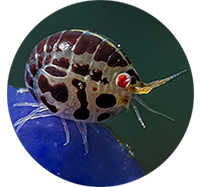Did you know that 6000 to 14,000 tons of sunscreen enter the oceans every year!
Sun-screen products containing ultraviolet (UV) filters—including avobenzone, oxybenzone, and octocrylene has been associated with coral damage for several years. When Palau passed the Responsible Tourism Education Act, it became the first country in the world to address sunscreen pollution at the national level. Aruba, Bonaire, the U.S. Virgin Islands, Marshall Islands, and Key West followed the ban.
The original research into the effects of chemicals in sunscreen was found to be flawed, but recent research appears to confirm that avobenzone, oxybenzone, and octocrylene, ingredients in most sun screen products at the time of writing, do have not only a negative impact on reef corals but also on freshwater organisms.
While this is not a global threat, In locations where there is a high level of human activity close to coral reefs and in freshwater habitats, there is a substantial risk damaging aquatic life. NOAA reports the following effect of the various compounds:
- Green algae: can impair growth and photosynthesis
- Mussels: can induce defects in young
- Sea urchins: can damage immune and reproductive systems and deform young
- Fish: can decrease fertility and reproduction, and cause female characteristics in males
- Corals: accumulates in tissues. Can induce bleaching, damage DNA, deform young and even kill
- Dolphins: can accumulate in tissue and be transferred to their young.
Don't stop using sun-screen, just use reef SAFE products both when in the waters around reefs, and in freshwaters. There are now many sun-screens regarded as "reef safe". Check out the internet and use one of the many available safe products.
References
2020: Skincare Chemicals and Coral Reefs. This is the current NOAA report with an infographic. There is an ongoing study that will be published later in 2021.
2020: Common sunscreen ingredients prove dangerous for freshwater ecosystems reports on the scientific paper: “A burning issue: The effect of organic ultraviolet filter exposure on the behaviour and physiology of Daphnia magna, published in Science of the Total Environment (doi: 10.1016/j.scitotenv.2020.141707)."
2019: Sunscreen and cosmetics compound may harm coral by altering fatty acids. The source research paper is cited at the end of this article.
Copyright
Photo by Joel Casilla on Unsplash



